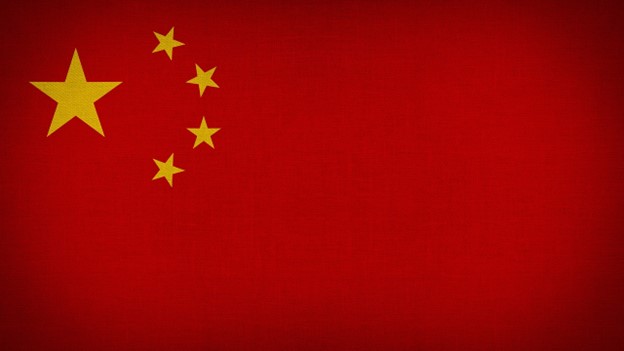The U.S. Office of National Intelligence has released a report on the “wealth and corrupt activities of the Chinese Communist Party. This is an Executive Summary.
Corruption within China is primarily due to structural features that centralize power, eschew independent checks or accountability—especially at the provincial level—and produce perverse incentives for political advancement and financial enrichment. These features of China’s bureaucratic system entrench incentives for corruption or obstruct efforts to reform the system in numerous ways. For example:
• The CDI organizations primarily responsible for investigating misbehaviors are political organizations that work directly for their Party committees and lack independent external oversight, allowing them to pursue anti-corruption cases in often arbitrary ways. The CCP is loath to allow external oversight and instead prioritizes self-rectification, probably fearing independent authorities would
undermine central control, limiting accountability and any prospects for sweeping reforms.
• Centrally directed economic growth targets for local governments—which must be achieved for career advancement—but decentralized decision-making at provincial and other local levels of government allow significant flexibility in policy implementation. This structure effectively encourages provincial and local leaders to take illicit actions for personal and professional gain.
• Membership in elite organizations such as the National People’s Congress (NPC) is coveted as a symbol of power and authority, and provides access to sensitive government documents. Potential benefits of NPC membership incentivize individuals to pay high costs to join, often through bribes, and to accept bribes while a member, or even upon completion of service, to facilitate business deals.
Senior-level Corruption
Specific instances of corruption among more senior CCP leaders are particularly difficult to determine from the outside, despite indications that corruption remains widespread. One academic study of criminal corruption cases in China found that corruption at the top of the bureaucratic hierarchy was very high and, of those charged with a crime, more than 80 percent of the charges involved bribery.
Pervasive government censorship and the absence of rules regarding public disclosures of leader finances contribute to a lack of transparency regarding personal wealth in China. Even so, journalistic research published in 2012 identified that the families of senior leaders, including then-Premier Wen Jiabao and then-incoming President Xi Jinping, had amassed significant wealth.
• Wen’s family—such as his mother, wife, son, and siblings—controlled assets of at least $2.7 billion in 2012. Similarly, Xi’s siblings, nieces, and nephews held assets worth over $1 billion in business investments and real estate.
• This research did not identify investments specifically linked to the leaders themselves, nor did it uncover any direct influence from the leaders contributing to a growth in family investments. However, their senior-level positions would have granted access to privileged information and both private and state-owned enterprise actions could have advantaged family holdings due to their connections to persons with political power. Following publication of this research, China tightened information controls and limited access to many foreign news organizations, which continues to challenge public research on issues of senior leader corruption or personal wealth.
• Xi may have urged family members to divest holdings as he came into power. However, industry research provides evidence that, as of 2024, Xi’s family retains millions in business interests and financial investments. While the does not link the investments directly to Xi, it is possible that these holdings are managed indirectly on Xi’s behalf.
Open-source research shows corruption cases within the CCP Central Committee span leading officials overseeing a range of portfolios and projects.
• In 2020, Zhang Wei, a Chinese businessman, was arrested on charges of organizing, leading, and participating in organized crime; illegal detention; and illegal possession of firearms and ammunition. He was also found guilty in 2021 of illegally absorbing public deposits.
• Chen Gang, a former member of the Leading Party Members Group of the China Association for Science and Technology, was accused in 2019 of accepting over $18 million in bribes—at least some of which was likely associated with his role in overseeing citywide construction projects for the 2008 Beijing Olympics.
• In April 2024, Yao Qian, Director of the China Securities Regulatory Commission (CRSC) Department of Technology Supervision, was investigated for “serious violations of discipline and law,” possibly for his role in China’s Central Bank
Digital Currency initiative. The CCDI has investigated at least 16 individuals within the CRSC, with six of those investigations occurring in 2024.
The anticorruption campaign has targeted rampant leadership corruption and has not shied away from purging high-level officials within the ranks of the People’s Liberation Army (PLA)—which have included a culture of pay-for-promotion that continues even a decade after the anticorruption campaign’s launch. In 2024, Xi stressed during a speech to military commanders that “the barrels of guns must always be in the hands of those who are loyal and dependable to the Party,” further emphasizing his commitment to Party loyalty and expectations of the same from the military, especially. His focus on corruption in the PLA may also reflect concerns that corrupt practices will prevent the military from acquiring the capabilities and readiness he has directed it to achieve by 2027, in preparation for a potential conflict over Taiwan.
• In 2023, China removed General Li Shangfu, then-Minister of National Defense, investigating both Li and his predecessor after arresting the commander of the PLA Rocket Force (PLARF) and at least nine other current or former PLARF personnel.
• In 2024, Beijing launched an investigation of Admiral Miao Hua, then-director of the Central Military Commission’s Political Work Department and in charge of political loyalty within China’s armed forces.
• Both Li and Miao were accused of Party discipline violations, and both were considered protegees of Xi, demonstrating the seriousness of the CCP’s concerns regarding loyalty and effectiveness—particularly within the PLA—and the scope of the regime’s approach to corruption.
